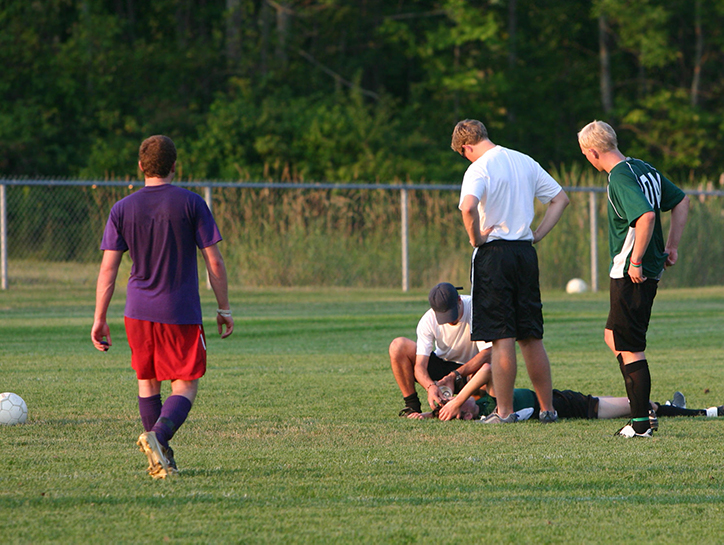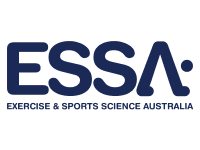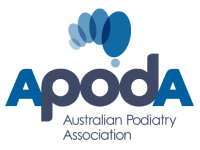Baseline Concussion Testing
Get ahead of the game by taking a baseline test. Know your personal performance level before a concussion and protect your brain from long-term damage.





To fully recover and protect your brain from long-term damage, it is vital to know your performance level before suffering a concussion. Baseline testing measures your personal performance in a healthy state, and avoids using “an average score”.
What is a concussion?
A concussion is a type of mild traumatic brain injury (mTBI) that occurs when the brain is subjected to trauma, such as a bump, blow, or jolt to the head or neck. Brain injuries can also happen when the head and neck are violently shaken. These types of injuries can cause the brain to move rapidly back and forth inside the skull, which can lead to damage of the brain cells and other chemical changes.
It is important to seek medical attention after experiencing a concussion or other TBI, as prompt treatment can help reduce the risk of long-term effects. Treatment may include rest, medications to manage symptoms, and physiotherapy to help the individual recover their cognitive and physical abilities.
What are the symptoms of a concussion?
Symptoms of a concussion may vary depending on the severity of the injury, which part(s) of the brain is affected, and the individual. Some common symptoms of a concussion include:
Mild symptoms:
These observed symptoms may only last a short period of time.
- Headache
- Dizziness
- Nausea
- Sensitivity to light or noise
- Blurred vision
- Balance problems or difficulty walking
- Confusion or disorientation
- Memory problems or difficulty concentrating
- Changes in sleep patterns
- Mood changes or irritability
Severe symptoms:
These observed symptoms may be more severe and last longer than mild symptoms. The presence of any of the following symptoms warrants prompt medical attention.
- Severe headache that does not go away or gets worse
- Double vision or multiple images
- Fluid or blood draining from the nose or ears
- Loss of consciousness (for any time period)
- Convulsions or seizures
- Extreme drowsiness or inability to wake up
- Weakness or numbness in arms or legs
- Difficulty speaking or slurred speech
- Loss of coordination
- Vomiting or nausea that does not go away
Not everyone will have all of these symptoms, and the degree of symptom intensity can vary. While others may experience more severe symptoms that stay longer, some people may only experience minor symptoms.
Short-term effects:
These effects can occur immediately after the injury or may appear within a few days. Examples of short-term effects include headache, dizziness, fatigue, and difficulty concentrating.
Long-term effects:
These effects may not appear until weeks or months after the injury. They may persist for a longer period of time and may require ongoing treatment or rehabilitation. Examples of long-term effects include memory problems, difficulty with balance or coordination, and mood changes such as irritability or anxiety.
What is Baseline Concussion Testing?
Baseline concussion testing is a way to measure an individual’s brain function and performance in a healthy state. It involves completing a series of cognitive and physical tests, such as EyeGuide and SCAT5 testing. The results of these tests are then used as a baseline, or reference point, for comparison if the individual experiences a concussion or other brain injury in the future.
Baseline concussion testing is often used in athletes who are at an increased risk of concussion due to the nature of their activities.
SCAT5 testing (Sport Concussion Assessment Tool, 5th Edition)
SCAT5 is the standardised assessment tool that is used to evaluate an individual’s symptoms, cognitive function, and physical balance and coordination. It consists of a series of questions and tests that are designed to identify the presence and severity of a concussion, as well as any other potential complications that may have resulted from the injury. The SCAT5 is used to help determine an individual’s readiness to return to physical activity or sport after a concussion.
EyeGuide testing
EyeGuide is a simple, 10-second, non-intrusive eye test that utilises the latest ocular tracking technology to provide an objective measurement, which when combined with a SCAT5 provides a complete view of a player’s baseline functional capacity.
The EyeGuide system tests a person’s smooth pursuit eye movements (SPEMs), which is the ability of the eyes to smoothly track a moving object. Research has shown that people suffering from a concussion or other brain injury have difficulty performing SPEMs. This is because SPEMs requires the coordination of many interlinked parts of the brain; trauma to any of these parts can interfere with a person’s ability to smoothly track objects.
Post-head knock testing
Post-head knock testing is important for every player that suffers a head knock in either a game or training. Whilst not every head knock injury will lead to a concussion, testing will help detect the presence and severity of one when compared to a player’s baseline test. Follow-up testing will also help guide the player’s treatment plan and progression back to play. Ongoing testing can also identify any long-term effects of the injury.
What kind of testing happens during an EyeGuide Concussion Test?
The EyeGuide system is designed to assess the oculomotor function (eye movement) of a player. To use the system, the player simply follows a moving dot on a portable screen for 10 seconds while their eye movement is tracked using special cameras and software. At the end of the test, a score is generated based on the level of deviation from normal eye movement. The higher the deviation, the higher the score recorded. This score provides information about the player’s eye movement function and can be used to identify any changes or abnormalities that may be present.
Cognitive functioning:
Testing may include assessments of cognitive abilities such as memory, attention, processing speed, and reaction time.
Other physical and sensory abilities:
Testing may include assessments of balance, visual skills, and physical symptoms. These assessments may be used to evaluate the impact of a concussion on an individual’s sensory and physical abilities and to identify any changes or abnormalities that may be present.
Overall, baseline concussion testing is designed to provide a comprehensive evaluation of an individual’s brain function and performance in a healthy state. By comparing the results of these tests to scores obtained following a concussion or other brain injury, healthcare professionals can determine the presence and severity of a concussion and monitor an individual’s progress in recovering from the injury.
Why do we need Concussion Testing?
As healthcare professionals, we know the importance of accurately assessing the extent of an athlete’s concussion. Early diagnosis is crucial in helping to prevent long-term effects and ensuring that the athlete receives the appropriate care and support. That’s why it’s essential to use objective measures, like the EyeGuide system, to track changes in performance and identify any abnormalities as soon as possible.
Using a personalised baseline score, rather than a community-averaged score, ensures that you have a more accurate representation of the athlete’s healthy state. This allows you to make more informed decisions about their rehabilitation plan and return to play, ultimately leading to better outcomes for the athlete.
Tracking an athlete’s recovery process with a personalised baseline score also allows us to monitor their progress and adjust their treatment plan as needed. This ensures that you receive the most appropriate care and support, helping to reduce the risk of long-term effects. Plus, using a personalised baseline score allows us to make a more informed decision about when it is safe for the athlete to return to sport.
Who should get a concussion test?
High-impact sports
Athletes and individuals who participate in high-impact sports or activities, such as football, basketball, boxing, and soccer are strongly recommended to undergo a baseline concussion test.
Individuals who have suffered a traumatic brain injury (TBI)
Individuals who have experienced a head injury or trauma and are experiencing symptoms such as headache, dizziness, nausea, fatigue, or confusion should complete a concussion test. Additionally, individuals with a history of concussions or other brain injuries may be at an increased risk of experiencing additional concussions in the future, and concussion testing is recommended for these individuals as well.
Children and adolescents
Concussion testing is generally recommended for individuals of all ages who are at risk of experiencing a concussion. However, it may be particularly important for adolescents, as their brains are still developing and may be more vulnerable to the effects of concussion.
It is also important to note that concussion symptoms may be different in children and adolescents than in adults.
By completing concussion testing and establishing a baseline, healthcare professionals can more accurately assess the presence and severity of a concussion and provide appropriate treatment and support to help individuals recover from their injuries.
Concussion Recovery
Concussion recovery and rehabilitation typically involve a combination of symptom management and targeted exercises and activities to help restore brain function and performance. The specific course of treatment will depend on the severity of the concussion and the individual’s symptoms and needs.
Symptom management
Symptom management may involve rest and the avoidance of physical and mental activities that exacerbate symptoms. As symptoms improve, individuals may be advised to gradually increase their physical and mental activity levels, with the goal of eventually returning to their pre-concussion levels of function and performance.
Exercise and Physical Therapy
Targeted exercises and activities guided by your physiotherapist will aim to improve balance and coordination, cognitive therapy to improve memory and other cognitive functions. These exercises and activities are designed to help individuals recover from the effects of concussion and regain their full cognitive and physical abilities.
Follow-up care
Follow-up care is an important part of the concussion recovery process. It involves regularly monitoring an individual’s progress and adjusting their treatment plan as needed to ensure the best possible outcome. Follow-up care may involve additional testing, such as cognitive or physical performance tests, to track an individual’s progress and identify any areas of weakness or concern.
If you or a loved one has experienced a concussion, it is important to seek medical attention and follow a recommended treatment plan to ensure a full and successful recovery. Don’t wait to get the care you need – reach out to us today to discuss your treatment options.
Frequently Asked Questions
- Will my health fund cover the concussion test?
Contact your private health fund provider to see your level of coverage. Physiotherapy appointments are usually covered by your provider.
A baseline concussion test may assist you with follow-up treatments through your provider.
- Do I need a referral for a follow-up concussion test?
No, your sports club will require a clearance to return to play and your clinician will conduct both the Eyeguide and SCAT5 tests to guide this decision.
- Do I need a referral to get a baseline concussion test?
No, a referral for a baseline concussion test is not required.
Get Started now, book an appointment today
Or Call 1300 738 609